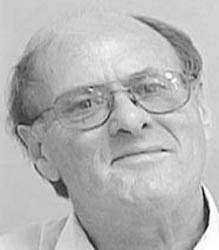The more we (Linda and I) think about an emergency bolthole to escape a worldwide economic collapse, the more we wonder if we’re not already living in it. (The bolthole, that is: not the collapse!) One’s home is always familiar territory, isn’t it? We know who to go to for goods and services of every kind, where to shop, what areas to stay out of for personal safety, who to allow in our house and who not.
Once you’ve made your home somewhere, it’s hard to be truly objective about the changes you see happening. You’re aware of the physical changes, as time goes by – a new apartment block, a new marina or entertainment complex, new roads – but you tend to forget the order in which they came. That’s what we’ve found, in the several places we’ve called “home” during our marriage.
We remember when we could leave all our keys in the car and find them there next morning.But we can’t name the exact year when criminals became so cheeky that absent-mindedness of that kind became costly. What year was it that we put burglar-bars on all our house-windows? We don’t remember. It all just crept up on us.
In this Caribbean island, most of the changes have been recent. Two generations ago there were only 12,000 residents, all of one ethnic identity. What money there was, had been wired home by men working on American merchant ships; local work-opportunities were limited to subsistence fishing, farming and rope-thatching. Now, we have 50,000 people of dozens of different nationalities; our tourism and Offshore tax-haven bring in more money than our government can sensibly spend.
Some day, Cayman may become too expensive for us, or too crime-ridden, or too noisy. Its medical and communications facilities may become sub-standard; so may its policing. Its underclass may get out of control. Its infrastructure may collapse; our household garbage-collection service may be cut back to once a week. The local authorities may become too hostile to foreigners. They may impose an Income Tax.
There are some places in Central and South America that seem attractive to us, although most of the nations there have histories of becoming Police States at the drop of a hat. The local army generals are almost always on the side of the rich landowners in civil disputes, and so is the US government. However, to be fair, the US-sponsored death-squads in the latter half of the 20th Century never regarded resident expatriates as threats to national security, and actually killed very few of them. Indeed, expats might in an economic collapse be safer there than in any NATO nation – or dependent territory.
We have a few boltholes in mind around Lake Atitlan in Guatemala, Lakes Chapala and Avandaro in Mexico, and maybe the vicinity of Vilcabamba in Ecuador if it hasn’t changed too much in the past few years. Parts of Costa Rica and Panama come highly recommended, which we ought to check out soon.
The ambient language of a prospective bolthole isn’t important enough to rule any place out of consideration. We are not keen on settling in any “gringo colony” in the region, though some of them are less parochial than the term implies. We don’t speak Spanish, but we have always been able to get by with a sort of pidgin Spanish, adequate for day-to-day dealings. We rely heavily on our transparent goodwill, which is more effective than language. After all, we have Norwegian grandchildren, and we don’t speak their language. Spanish is a doddle, compared with Norwegian.
All the same, it would certainly be more convenient to choose one of the English-speaking islands of the eastern Caribbean, or southern England, or Gibraltar, or New Zealand. All wonderful candidates. For the moment, though, Cayman is our choice. Its status as a British colony gives us a certain degree of protection against lawlessness, in an increasingly lawless world. Because of its societal divide between natives and immigrants, it’s not for everybody. But we’ve seen off several attempts by the authorities to remove us over the past 34 years for defying the censorship rules; any next attempt holds little fear for us.
Gordon Barlow has lived in Cayman since 1978. He was the first full-time Manager of the Cayman Islands Chamber of Commerce (1986-1988) – a turbulent period when the Chamber struggled to establish its political independence. He has publicly commented on social and political issues since 1990, and has represented the Chamber at several overseas conferences, and the Cayman Islands Human Rights Committee at an international symposium in Gibraltar in 2004. His blog www.barlowscayman.blogspot.com contains much information on life in Cayman, written from the point of view of a resident and citizen.

